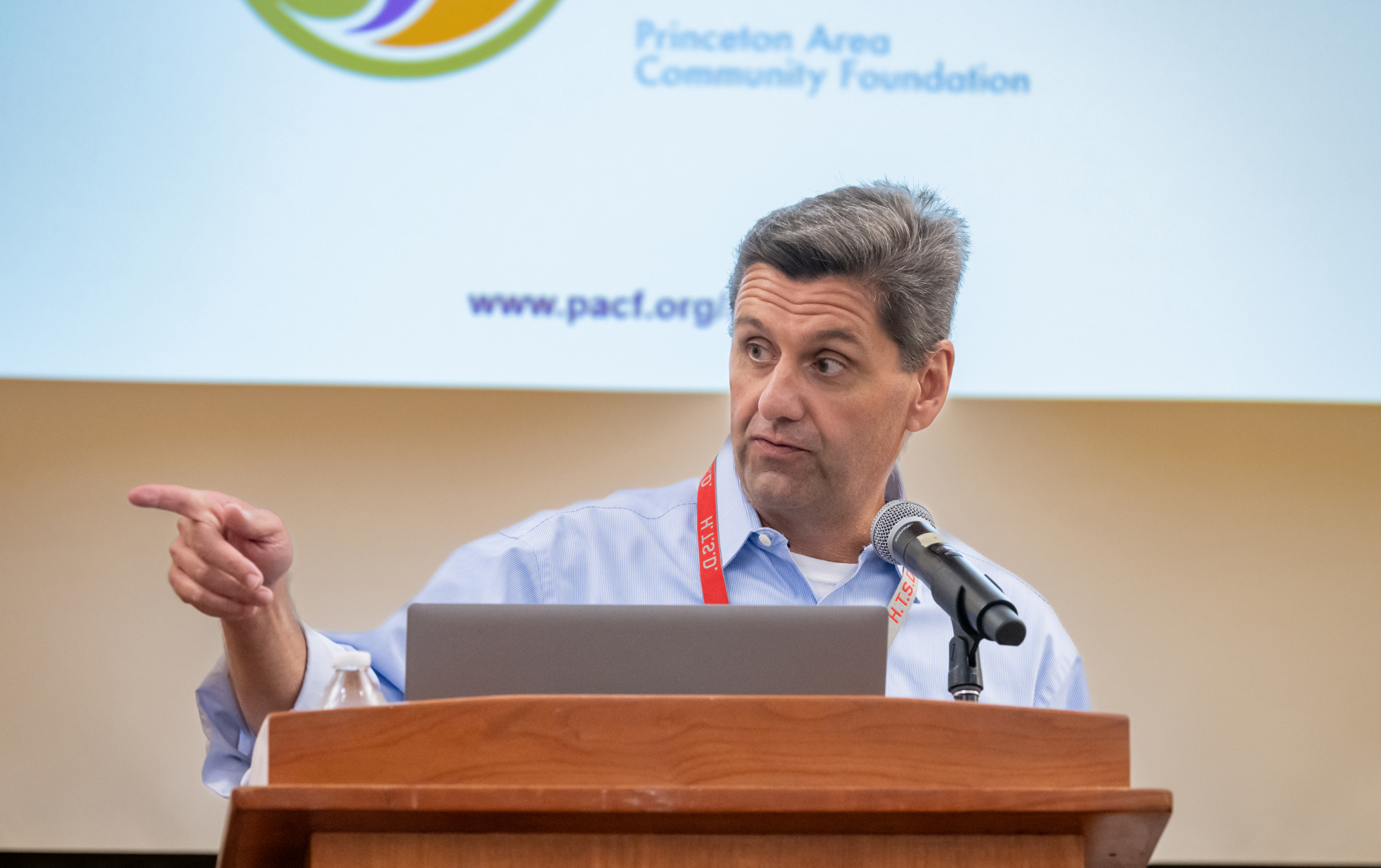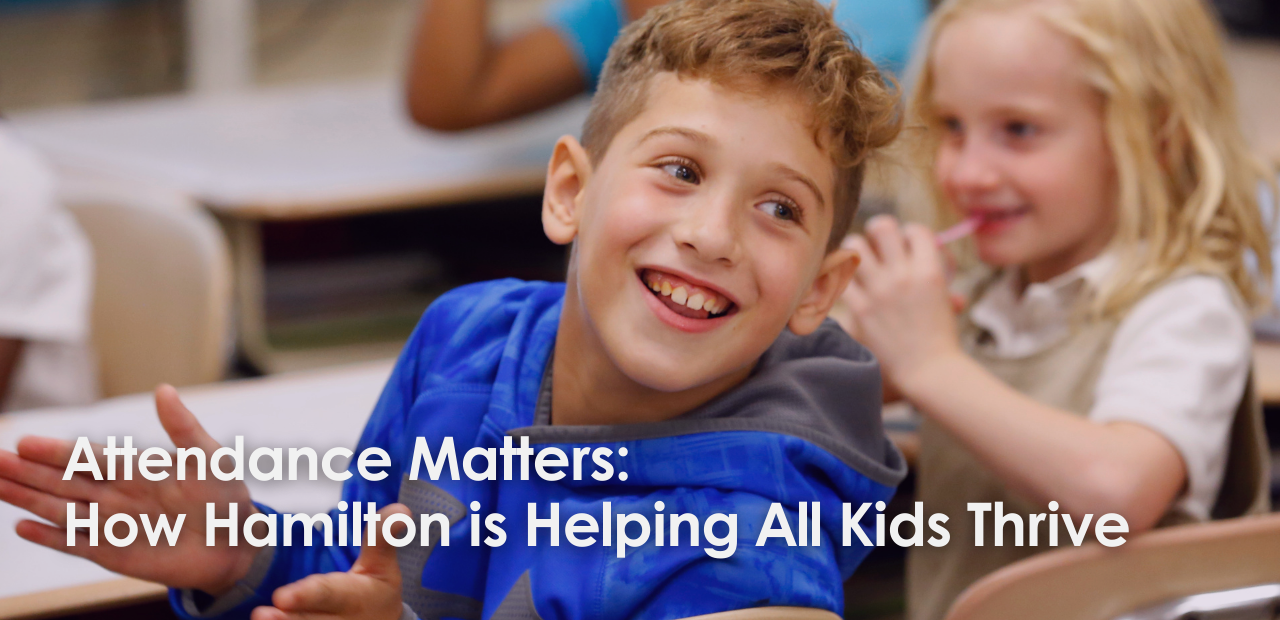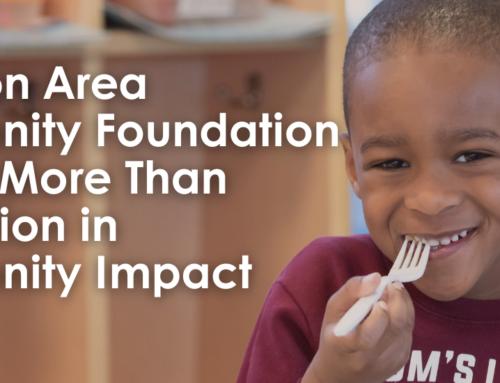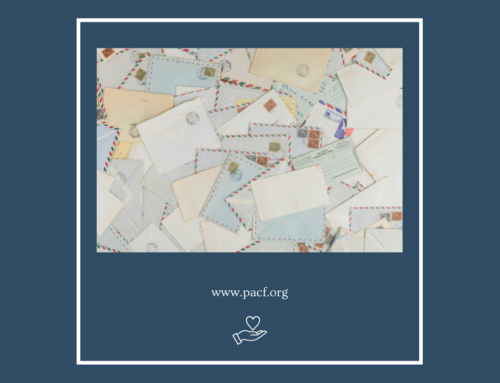School attendance is something Dr. Scott Rocco thinks about every day.
“We have conversations daily and look at the data constantly – that’s a byproduct of the All Kids Thrive grant we received from the Princeton Area Community Foundation,” said Dr. Rocco, the Hamilton Township School Superintendent.
The district teamed up with the Foundation for Educational Administration (FEA) to create the Building a Culture Where All Kids Thrive in School and Beyond: BE THERE! program, and as part of a second grant in the district, Wilson Elementary School worked with Young Audiences of New Jersey and Eastern Pennsylvania on Arts Lab.
Both grants were part of the Community Foundation’s All Kids Thrive initiative, a 5-year, $3 million investment with 10 school nonprofit partnerships in Hamilton, Lawrence, Princeton, and Trenton.
The initiative was created to help reduce the barriers that prevent students from going to school. Education can be a pathway out of poverty, but poverty can also prevent students from getting to school. And when students are chronically absent (defined as missing just 10 percent of school year – an average of 2 days a month) it can have lifelong consequences for young people.
“Attendance is crucial to learning and education,” Dr. Rocco said. “If you don’t come to school, you can’t learn, and students understand that, but it was more important to figure out why they weren’t coming to school. We worked with the FEA, and they really helped us understand what was working, what wasn’t working, and what we needed to do.

Dr. Scott Rocco speaking at the FEA Absenteeism Summit in 2023.
“There was a lot of buy-in across the district – administrators, teachers, and support staff,” he continued. “A lot of what we learned and worked to implement are the foundational aspects of how we operate today, in regard to chronic absenteeism. We’ve seen a lot of great success and seen improvement in the district. When you reach out to families and help them understand why you’re calling about absenteeism, they’re receptive and understanding.”
School officials look for patterns: who are the kids who are out and why are they out?
One elementary school student missed 56.5 days of kindergarten. By engaging with her family, school officials helped her reduce that number by more than half – to 25 – in first grade, and more than 6 months into her second-grade school year, she had only missed six days.
“Inside the numbers are kids, reasons and issues that we need to find solutions for – a huge part of what the grant was able to do for us, was it personalized the numbers and they’re different for each building,” he said. “Many of our kids can walk to school, but that plays a role in chronic absenteeism when there’s bad weather, and we figured that out.”
Engaging families in activities is also another important way they encourage kids to come to school, he said.
“We make personal contact with families and consistently reinforce the importance of being in school,” Dr. Rocco said. “It takes time, but no one gives up on the kids. We’re constantly working with the families. The grant helped the school leadership, faculty and staff build trust with the school community.”
Building upon the lessons learned from the chronic absenteeism initiative, the Community Foundation is now working with some local school superintendents, including Dr. Rocco, on a community schools initiative.
In community schools, faculty and staff work with community partners to ensure that students and their families have access to needed resources. They ensure that academics, health, youth development, and family engagement are integrated into the fabric of the school.
“When we first applied for the All Kids Thrive grant, and the Community Foundation staff and board members came here and we were presenting our proposal, I remember thinking about their questions and comments,” Dr. Rocco said. “It wasn’t just questions. It was a sense of “we want to get to know you.” It left me with the start of a very good feeling that I’ve had ever since about the Community Foundation and their interest in children and education. I knew this was an outstanding group of people with a vested interest in doing what is right for kids.”
So when Nelida Valentin, Community Foundation Vice President, reached out to ask the district to be part of The Mercer Community School Coalition, Dr. Rocco quickly agreed.
“The positive experience we had with Community Foundation made it a very easy decision to say ‘yes,’” he said. “They demonstrated commitment, professionalism, dedication. They really care.”
He said the Community Foundation has served as leader and connector.
“People see them as a trusted partner,” Dr. Rocco said. “What the Community Foundation has been able to do for Hamilton and I’m sure the other grantees, is having a long-standing impact on students and learning, helping re-establish the importance of school for kids and for attending consistently and ultimately that will improve student learning and outcomes for kids.”






